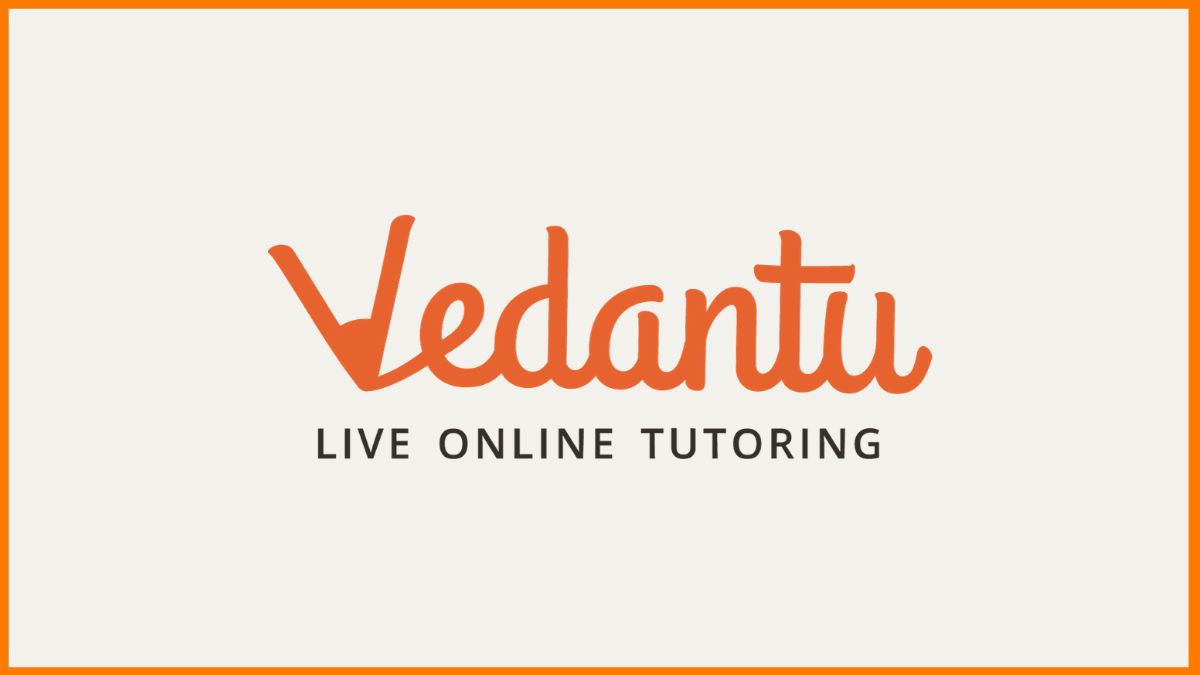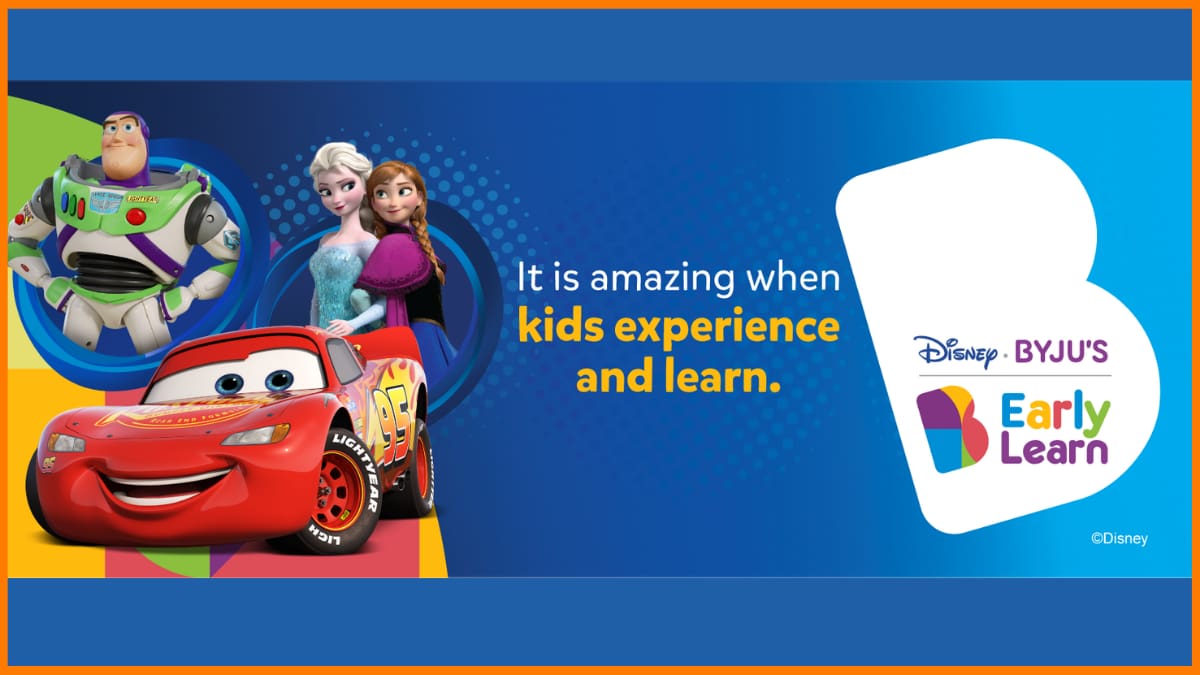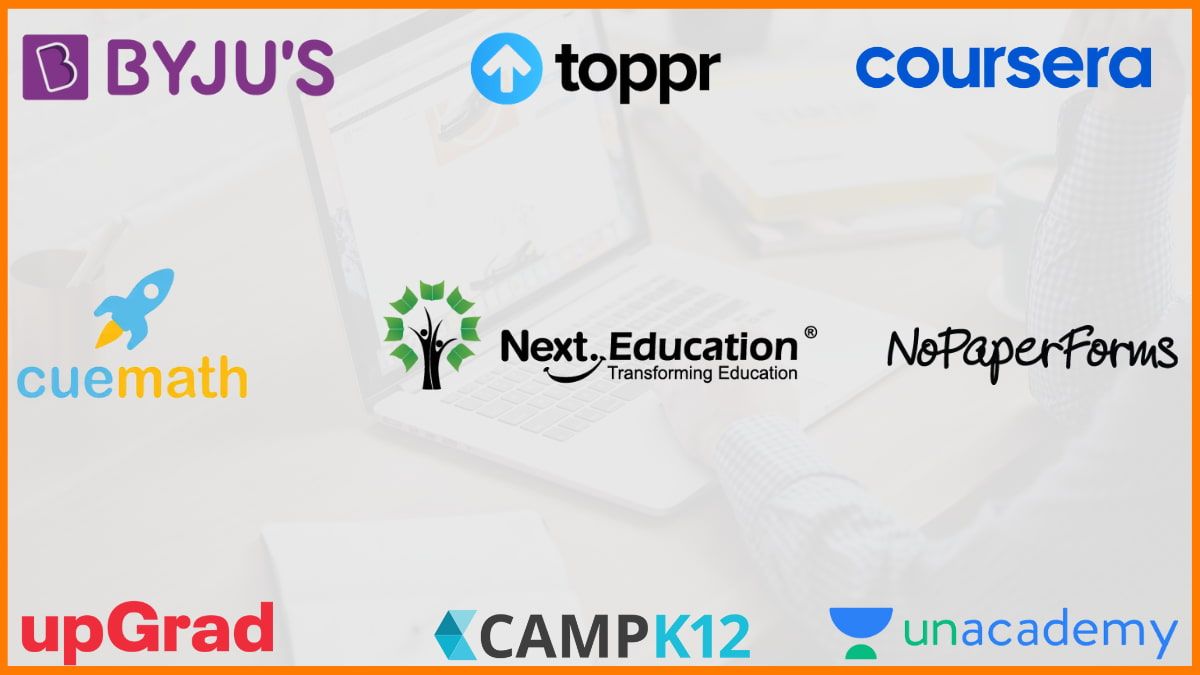Company Profile is an initiative by StartupTalky to publish verified information on different startups and organizations.
The huge COVID-19 outbreak, which caused chaos in the global economy, has also suffocated the education sector. Over 1.5 billion children, or 90% of the world’s primary, intermediate, and tertiary students, were physically unable to attend school.
Educators now demand technology solutions to facilitate remote teaching and learning, which has had a revolutionary effect. However, digital transformation in the education industry is not confined to online education and learning after COVID-19.
Although some educational institutions have embraced technological solutions previously as well, during the COVID-19 pandemic, the necessity of digital transformation in the educational environment was understood in most schools and colleges. Lead provides a technology-based school transformation system that ensures children receive a high-quality education.
Lead was founded in 2013 by Sumeet Mehta and Smita Deorah to provide innovative school ed-tech options to all stakeholders. The company was founded for students out there who might lead their generation ahead, as the name indicates.
Know more about the company profile, startup story, business model, founders, etc., of Lead by reading this article further.
Lead – Company Highlights
| Startup Name | Lead |
|---|---|
| Legal Name | Leadership Boulevard Pvt. Ltd. |
| Headquarters | Mumbai, Maharashtra, India |
| Industry | Ed-tech, E-learning |
| Founders | Smita Deorah, Sumeet Mehta |
| Founded | 2013 |
| Valuation | $1.1 billion |
| Areas Served | India |
| Current CEO | Sumeet Mehta |
| Website | leadschool.in |
About Lead (Formerly Lead School)
Lead – Founders
Lead – Startup Story
Lead – Vision, and Mission Statement
Lead – Industry
Lead – Name and Logo
Lead – Business Model, and Revenue Model
Lead – Funding, and Investors
Lead – Growth and Revenues
Lead – Products and Features
Lead – Challenges
Lead – Campaign
Lead – ESOPs
Lead – Acquistion
Lead – Competitors
Lead – Future Plans
About Lead (Formerly Lead School)
Lead (formerly known as Lead School) provides a technology-based school transformation system that ensures children receive a high-quality education. The EdTech company assists in the digitization and transformation of inexpensive private schools to better serve children from moderate and low-income households.
Lead School, as it was earlier known as, rebranded itself to “LEAD”, in July 2021. This successful branding attempt reflects Lead’s “evolution from a chain of schools to one of India’s leading edtech players that transforms traditional schools with its disruptive solutions.”
It creates an integrated system to assist K-12 schools in developing curriculum, teaching methods, obtaining books and other materials from vendors, and better evaluating learning outcomes.
Lead was founded by Sumeet Mehta and Smita Deorah in Mumbai, Maharashtra, in 2013. Through significant use of technology and a centralized curriculum design team, the organization partners with public and private school owners to assist in curriculum creation and teacher training, allowing kids from impoverished neighborhoods to have access to cheap and high-quality education.
The startup runs a school management software application. It further helps in student learning surveillance, instructor performance, teacher training, and course content delivery. It also offers digital learning resources, as well as traditional readers and workbooks, eBooks, and learning activities. Lead also has a mobile app for Android phones and tablets.
Lead – Products and Services

The Lead platform is designed to help:
- The School Owners – Lead helps the schools and school owners to get international standard education, marketing support, and more.
- Teachers – Lead helps teachers to become super teachers. It promotes the use of easy and effective solutions to make teaching easy. It also helps teachers extend continuous training and development opportunities, along with helping them access Lead’s national network of excellent teachers.
- Parents – Lead helps parents get quality education to secure the future of their kids.

Lead – Founders
Lead was founded in 2013, by the couple, Sumeet Mehta and Smita Deorah, in Mumbai, Maharashtra.

Sumeet Mehta
Sumeet Mehta is Lead’s Co-Founder and Chief Executive Officer. Sumeet has also worked for Olay Asia Pacific and Vicks & Metamucil Asia Pacific as a brand manager. He formerly worked at Zest Philippines, as an assistant brand manager.
Smita Deorah
Co-founder, Chief Learning Officer, and Chief Operating Officer of Lead, Smita Deorah also founded Sparsh, a non-profit organization whose mission is to impact the lives of young children from low-income communities in the field of education, enabling them to maximize their potential and live life powerfully, primarily by operating K-12 schools in rural and taluka areas and providing access to high-quality education.
Lead currently has an employee strength of 1000+ employees.
Lead – Startup Story
Affordable private schools, which have sprouted up in small communities as a substitute for free and low-quality public schools, are typically just slightly better. These schools, which number between 200,000 and 400,000 students, have poor academic attainment. Unfortunately, neither NGOs nor enterprises working in the field of education technology have much time for them.
That’s the difference Sumeet Mehta (whose parents were also teachers in rural areas) and Smita Deorah have tried to bridge with their Lead’s initiative. Both believed that nobody was resolving the difficulties that smaller towns’ APS faced, so they decided to take action by establishing their independent schools.
When a friend offered them land in Ahmedabad, Gujarat, in 2013, they took the leap. They established the Shanti Niketan English School with their own money, starting with just a few learners and gradually increasing to roughly 25. They hired and trained a few local educators. However, Mehta quickly realized that providing a high-quality education to predominantly first-generation students was more difficult than they had anticipated.
Students could recognize the alphabet and recognize letters, but they struggled to put words together in a phrase. Likewise, while they could answer a math question using a formula, they went blank when faced with a question written in English terms.
Sumeet Mehta and Smita Deorah, a couple, founded Lead in 2013. The firm claims to provide cheap private schools with an integrated curriculum and technological solutions, allowing them to deliver advanced education via an online or hybrid structure. Sumeet Mehta and Smita Deorah, started Lead with one school in 2013 with an approach to provide disruptive school edtech solutions for all stakeholders.
The Lead team discovered that kids who were first-generation learners leapfrogged and filled gaps fast if the three primary concerns – a concentration on English, a more adaptable curriculum, and a more trained teacher – were addressed.
The Lead team grew as a result of their efforts paying off. In Maharashtra’s tier-III and tier-IV towns, four new schools have been added. They now operate five schools with around 2000 pupils who pay tuition ranging from Rs 12,000 to Rs 18,000 each year.
They expanded their learning approach to their partner schools in 2016, allowing the firm to impact the lives of even more children. Their well-researched worldwide standard curriculum and integrated solutions are presently being used by over 3,000 Lead Powered Schools.
Lead School rebranded itself in July 2021 and is now known as Lead, with a new logo.
Lead – Vision, and Mission Statement
Lead’s mission and vision statement say, “We’re leading the School EdTech revolution in India as a pioneer by empowering schools across India with our integrated solutions to make international standard education affordable and accessible for every child in the country.”
Lead – Industry
The Covid-19 outbreak has expedited the use of technology in India’s normally slow-paced education sector. Investors began pouring money into a sector that they had previously avoided, with India seeing $0.5 billion in EdTech funding in 2019 and $4 billion in 2020 and 2021.
The EdTech industry has grown at a breakneck pace in recent years, and it has only accelerated since Covid-19. According to research, the EdTech industry was around $750 million in 2020 and would reach $4 billion by 2025. This is a drop in the bucket compared to the wider education business, which is expected to be worth $135 billion by 2020, according to the same analysis. Early students in pre-school through continuous learners wishing to improve their skills are all part of the market.

Lead – Name and Logo

The current name “Lead” marks Lead as a leading ed-tech player, which has grown from being a chain of schools, thereby, pointing out its evolutions.
The new Lead logo marks the upward trajectory of the startup, signified by a starburst. This identifies the excellence and achievement of students, teachers, and schools.
Lead – Business Model, and Revenue Model
Lead is a software-as-a-service company that enables and enhances educational institutions. It’s a full-stack assessment, education, and retraining solution. Lead also has a separate app for parents that allows them to follow their children’s development while also allowing their pupils to learn from home.
Lead operates on a SaaS model, charging schools a set cost per student per year. Adopting Lead pays for itself since it frequently eliminates the need for a slew of other tools like an LMS, textbooks, and administrative software.
Lead also increases school enrolment and helps school revenue. The fact that Lead has a 100% net retention rate proves its unique selling proposition.

Lead – Funding, and Investors
Over the course of six rounds of funding, Lead has raised a total of $184.91 million. The last funding round it raised was worth $19.6 million, and came from Alteria Capital, Stride Ventures on January 11, 2023.
| Date | Round | Amount | Lead Investors |
|---|---|---|---|
| Jan 11, 2023 | Debt Financing | $19.6 million | Alteria Capital, Stride Ventures |
| Jan 13, 2022 | Series E | $100 million | GSV Ventures, Westbridge Capital |
| Apr 26, 2021 | Series D | $29.32 million | GSV Ventures, Westbridge Capital |
| Aug 21, 2020 | Series C | $27.99 million | Westbridge Capital |
| Sep 1, 2019 | Series B | $7 million | Elevar Equity |
| Jul 1, 2017 | Series A | $1 million | Elevar Equity |
Lead – Growth and Revenues
After direct-to-consumer brand Mamaearth and artificial intelligence firm Fractal, Lead happens to be the third business to join India’s unicorn club in 2022. It is also the sixth edtech business in India to achieve unicorn status.
Unicorns are privately held companies with a market capitalization of $1 billion or more. Lead, according to Mehta, works with over 3,000 schools in more than 400 cities. The company has doubled its valuation in the past 9 months, as of February 2022. The firm hopes to reach 2 million kids throughout the country by the start of the next fiscal year. It currently extends its services to over 1.2 million students and to more than 25,000 teachers.
In 2021-22, according to Mehta, the edtech business will have an annual contract value of $80 million (derived from cooperating schools).
“Lead’s growth last year, despite Covid disruptions, underlines its consumer-first approach and deep focus on learning outcomes. We are excited to double down our investment in Lead, to support its mission of transforming the education sector in India,” said Sandeep Singhal, managing director at WestBridge Capital.
Lead is trusted by more than 3 million parents for delivering excellent quality education, and Lead partner schools are present in 400 plus cities with 9000 plus schools and 9000 plus students.
Lead Revenue, Financials and More
Lead operational revenue is increased from FY22 to FY23 which shows that company is making profit and is growing.

Expenses Breakdown
Lead expense has risen from Rs 538.2 crore in FY22 to Rs 617.46 crore in FY23.
| Expenses Breakdown | FY22 | FY23 |
|---|---|---|
| Employee benefits | Rs 256.6 crore | Rs 285.44 crore |
| Purchase of goods | Rs 63.68 crore | Rs 146.77 crore |
| Impairment loss on assets | Rs 30.57 crore | Rs 34.4 crore |
| Legal and professionals | Rs 48.57 crore | Rs 26.26 crore |
| Advertisment and promotions | Rs 76.46 crore | Rs 24.52 crore |
| Others | Rs 62.42 crore | Rs 100.07 crore |
The company’s financial performance in FY23 significantly improved, with ROCE and EBITDA margin going from negative to -104.30% and -72.62%, respectively in FY23. It invested Rs 2.26 in order to generate one rupee of operating income.
| FY22-FY23 | Date | Amount |
|---|---|---|
| EBITDA Margin | -270.18% | -104.30% |
| Expense/Rs of operation revenue | Rs 4.07 | Rs 2.26 |
| ROCE | -57.16% | -72.62% |
Lead – Products and Features
Lead has launched various apps and features; some of these are:
| Lead Products and features | About | Date |
|---|---|---|
| Lead launched "Super 100" programme | The goal of this program is to provide equal opportunity, a fair playing field, and the chance for tier two towns in India to legitimately compete for the title of national toppers. | May, 2022 |
| Lead launches Lead Teacher App | This enables teachers to access more than 200 hours of training and certification materials on instructional techniques, pedagogies, and soft skills | Nov, 2021 |
| Lead launches iHomework | It enables teachers to click once to deliver daily instructions and access a number of ready-made homework solutions. | Nov, 2021 |
| Lead launches Mobile based coding and computational based programme | It is a CCS program with a mobile component for grades 1–8 in more than 2,000 partner private schools in Tier II and higher cities. | July, 2021 |
| Lead launches Bridge Course | The course’s hybrid style (which includes both online and offline modes) is intended to give a thorough review of fundamental ideas and to remove gap. | June, 2021 |
Lead – Challenges
Lead has faced loads of challenges. In fact, the company is still pushing hard to make its EBITDA positive and turn profitable. This makes Lead join the likes of other Indian edtech startups like Byju’s, Vedantu, Unacademy, and more.
Lead – Campaign
#SaluteTOParents Campaign
This campaign was launched on September, 2022 it exemplifies the unshakable commitment of parents who go above and beyond to support their children’s dreams, foster self-confidence, and get them ready for a prosperous future.
Campaign to increase enrollment at inexpensive private schools
Two TV ads are used in this campaign, one for South India and the other for the rest of the nation. The effective learning outcomes of kids who attend LEAD Powered Schools are eloquently illustrated in these advertisements.
Lead – ESOPs
LEAD has announced an ESOP monetization scheme for its employees, which would be worth around $3 mn, as of February 2022. This ESOP plan is estimated to help the startup retain talent along with helping them gain from the same. Around 20% of its employees own ESOPs and have also offered ESOPs as appraisal bonuses previously.
Lead – Acquistion
Lead has acquired two companies to date. The recent acquisition is Pearson’s India K–12 learning in March 2023.
| Acquired | Date | Amount |
|---|---|---|
| Pearson – K-12 learning | Jan 6,2023 | – |
| QuizNext | Dec 3, 2020 | – |
Lead Layoffs
Lead has laid off somewhere between 80-90 of its employees in July 2022, as per some reports. Sales, marketing, and the operations department were among the affected ones.
The company has laid off around 60 employees as per some reports in January 2023. In the second round of layoffs, the tech and product teams have been impacted.
Lead – Competitors
Some of the Lead’s major competitors include:
- CodeChef
- Embibe
- uFaber Edutech
- ClassTag
- Coassemble

Lead – Future Plans
“LEAD acts as the Intel inside for affordable schools and guarantees 70%+ mastery in all subjects and all grades for low/middle income students and exceeds the guarantee,” said Deborah
In the next school year, Lead anticipates an annual revenue run-rate of $80 million. The firm intends to use the additional funding to improve its product and curriculum. It wants to reach 25 million students in 60,000 schools by the end of 2026, and increase its annual revenue to $1 billion.
With more than 250 million school-aged children, India has been one of the largest global educational markets. Indian parents place a high value on their children’s education because they believe it is the way to economic advancement and a better life.
Several companies, including edtech behemoths Byju’s, Unacademy, and Vedantu, as well as American behemoths Amazon, Facebook, and Google, are striving to reach the country’s students.
“We, at GSV, believe that the mastery guarantee is a revolutionary offering in K12 education space and has the potential to be societally transformational for students. With this strong and unique value proposition and exceptional management team, LEAD is well on its path to becoming the world’s largest and most impactful school edtech company,” she added.
Lead has ambitious plan to reach more than 25 million kids and more than 60,000 schools by 2028. Their services are offered to elite schools in urban areas and large cities, as well as Tier 3–4 towns and villages, with medium–priced institutions serving as their primary clientele.
FAQs
What is Lead?
Lead is an ed-tech company that partners with public and private school owners and provides a technology-based school transformation system that ensures children receive a high-quality education.
Who is the founder of Lead?
Lead was founded by Sumeet Mehta and Smita Deorah in Mumbai, Maharashtra, in 2013.
Who is the CEO of Lead School (currently Lead)?
The CEO of Lead School (now Lead) is Sumeet Mehta.
Is Lead free?
Lead operates on a SaaS model, charging schools a set cost per student per year.
Which companies do Lead compete with?
CodeChef, Embibe, uFaber Edutech, ClassTag, and Coassemble are among Lead’s major rivals.
























































































